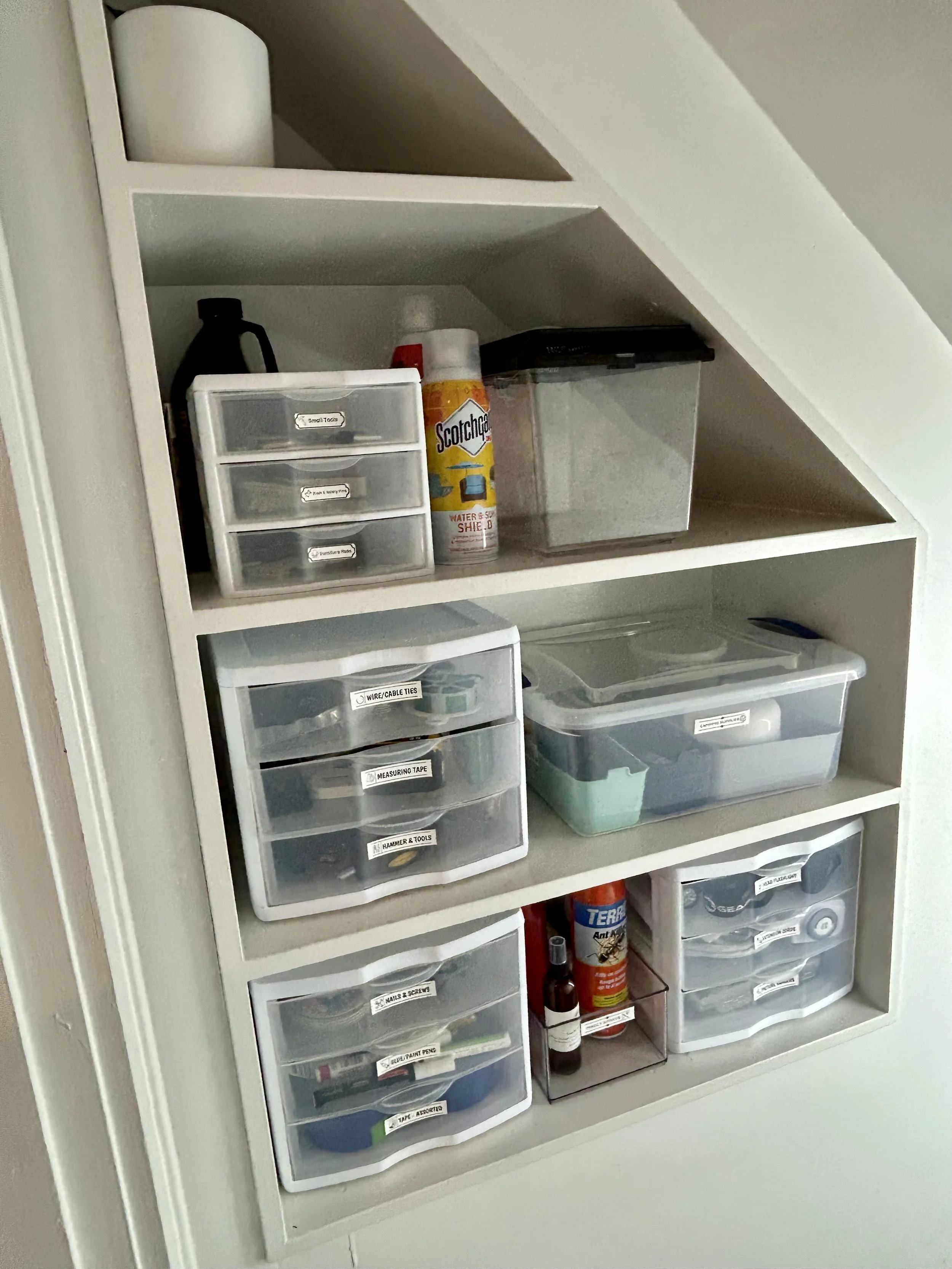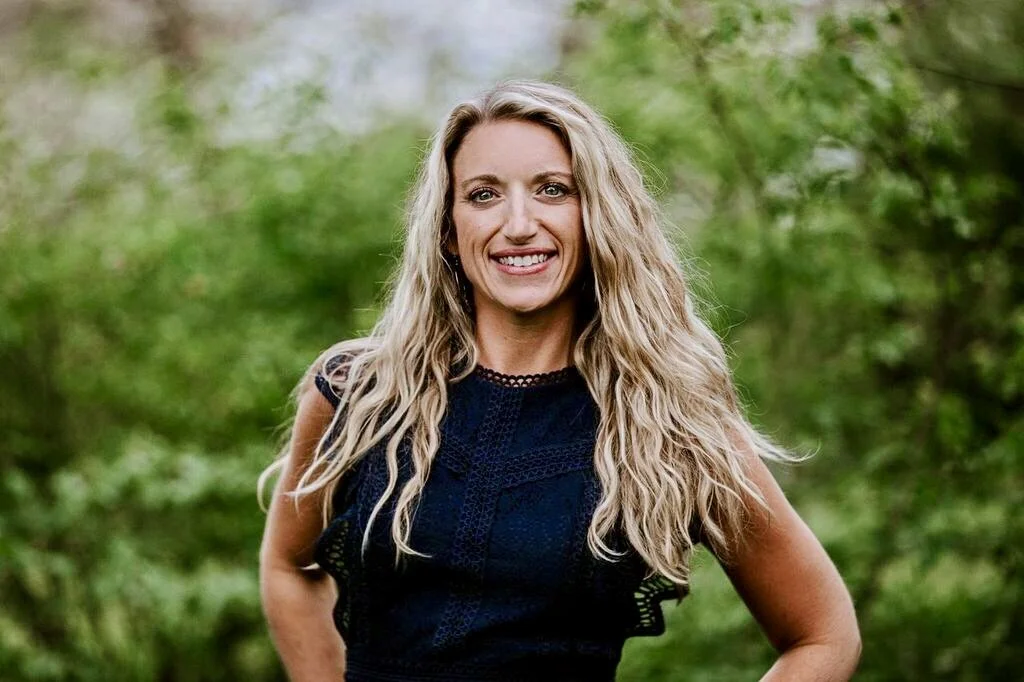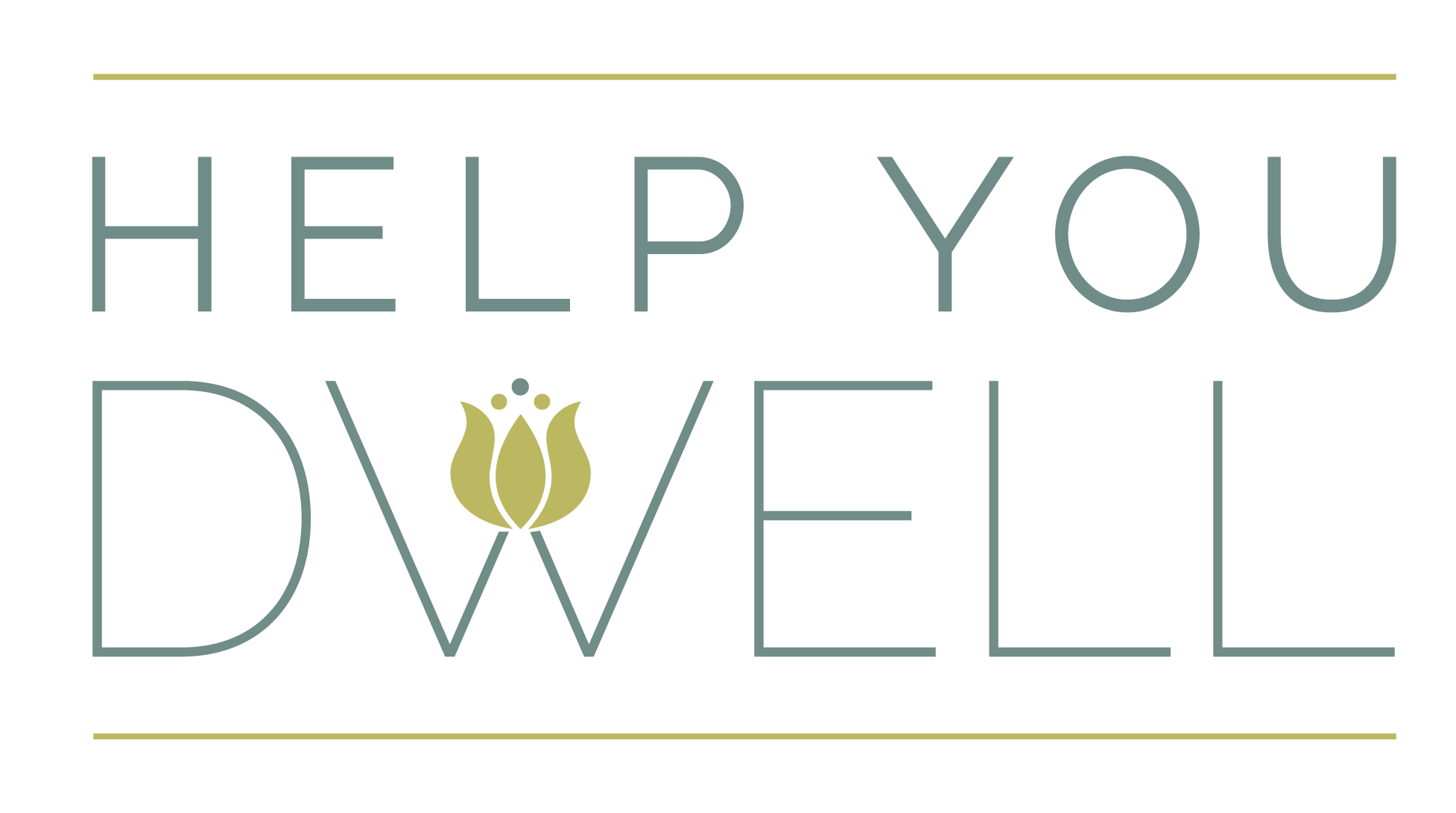We are honored to share some wisdom and encouragement from one of our very own organizers, Lauren Wilson, LMSW BA.
My 1940s cottage home is nestled in a neighborhood of established dogwood trees and 80- year-old azalea bushes. It has one of those classic basements, like in the Home Alone movie (minus the scary furnace!). The basement comfortably fits my car and several storage shelves, while also making room for kiddie bike rides. Over time, that open space became a collection of old paint cans, dusty boxes, and piles of junk. I knew I needed to clean out the basement, yet I pushed that task to an unknown future date. Working as a social worker, I would return home exhausted, my mind burdened by others’ crises, and see the same piles. I was longing for a sense of peace but felt stuck.
The ongoing struggle for peace and order at home is a familiar one. Many of us are feeling swamped by the demands of life and messy homes can be a side effect. There is a connection from our home to the mind and body - a disorganized living space can negatively impact your sense of emotional well-being. The presence of clutter in the home can create feelings of defeat and a loss of control over your physical environment, leading to higher levels of stress and low mood. (4)
When I began working as a professional organizer, I found that clients were overwhelmed with the burden of the state of their homes. They would often apologize to me for the scattered contents of their closets or pantries. After I completed a tidy project, clients would appear lighter, expressing relief when looking at their neatly organized spaces. Decluttering has the potential to boost productivity, order, self-efficacy, and mood.
As an organizer and mental health professional with years of experience working with clients through various life transitions, here are a few practical steps to start finding more balance:
MINDSET CHANGE
Clients often say to me that they are “a mess” or “a messy person”, as if the cleanliness of their home defined who they are as a person. I would encourage them to separate their identity from their home organization. Levels of tidiness vary greatly among individuals. A helpful tip is to view a zone of clutter like a notification, similar to a text message dinging on your phone, signaling that you might be getting overwhelmed. Instead of dwelling on how messy you are, try viewing yourself as a capable person that can have an organized home. Adopting a positive outlook can lead to greater odds that you will eventually make a change. A positive mindset is a powerful predictor of future action. (6)
MOVE FORWARD
You must move your feet to begin walking, and the same goes for organizing your space. The process of clearing out clutter involves forward movement. Take a small step or a big step - the key is to make progress. We all walk and run at different paces. We approach cleaning and organizing our homes with the same mindset. In my messy basement, one day I finally decided to just walk downstairs and tidy up for a few minutes. I started with one shelf and ended up throwing away many old ceiling fan parts. Then I hit a flow state and tackled the entire shelving unit, which made me feel very accomplished. It is up to you how much of your stuff you decide to keep or give away, but it’s the forward momentum that is important. Our bodies crave movement and reaching goals - small actions will lead to higher chances of making change, which invigorates your mental health.
MAKE SPACE
Organization helps your brain to focus. “Your brain is wired to be able to keep track of only a few details at once for a short period, so it can get overloaded when there’s too much going on.” (1) If you look at your messy junk drawer, your brain is working harder to categorize all the contents. If there is order, let’s say you separate your pens from the screwdrivers, your brain is unhindered to rapidly locate what it needs. A disorganized environment can significantly impair your attention, concentration, and focus, leading to frustration and lower cognitive functioning. (3) Clear away items you no longer need to decrease your emotional load and create brain space, one shelf or one drawer at a time.
To tackle clutter and create a calmer mind, begin by cultivating a healthy mindset, making one small step towards tidying your home, and ultimately creating space for your brain to breathe. I tried the practical steps above in my basement, and when I came down my stairs the next morning from a tidy session, there was an airy feeling of pride and joy. I now have more space in my mind to focus on spending quality time with my kids, or working on a new hobby that invigorates my senses.
Clutter is a hurdle that we have to spring over to create a new passage.
Need Decluttering Help?
At Help You Dwell, we offer a customized personal approach to help you feel more settled in your home. By organizing even a small space of your home, you get the gift of daily glimpsing at that tidied space to feel more content. We can help guide you through these practical steps and get you on a journey to emotional wellbeing!
Lauren Wilson, LMSW – Licensed Master Social Worker helping people navigate life and family transitions. She blends her decades of mental health experience with practical strategies to help create environments that support clarity, healing, and well-being. Lauren is a trauma informed professional organizer that specializes in mindful decluttering, organizing, and supportive home redesign as tools for emotional and spiritual renewal. Her particular focus is during significant seasons of change (divorce, grief, empty nesting, career shifts, etc.), and for busy families of all ages. She works as a pre-licensed therapist in Knoxville, TN, and provides professional organizing services for Help You Dwell. Lauren offers personalized life & space wellness coaching through her business Flourish Consulting Services LLC. This post is for educational purposes and does not constitute therapy.
If you’d like to connect with her, send an email to: lauren@flourishcs.com
Lauren E. Wilson, LMSW, BA
Owner/Flourish Coach
Flourish Consulting Services LLC
865-257-9078
SOURCES:
1 - How Clutter Can Affect Your Health - Barbara Brody, Medically Reviewed by Jabeen Begum, MD. WebMD
2 - Darby E. Saxbe and Rena Repetti; Personality and Social Psychology Bulletin; Volume 36, Issue 1
3 - Stephanie McMains and Sabine Kastner; Journal of Neuroscience; 12 January 2011, 31 (2) 587-597
4 - Catherine A. Roster, Joseph R. Ferrari, M. Peter Jurkat; Journal of Environmental Psychology; Volume 46, June 2016, Pages 32-41
5 - Stacey Colino, November 14, 2023, Medically Reviewed by Seth Gillihan, PhD. Why Decluttering Is Important for Self-Care.
6 - Frontiers in Psychology, Carlos Laranjeira, Ana Querido, 2022 Feb 24







